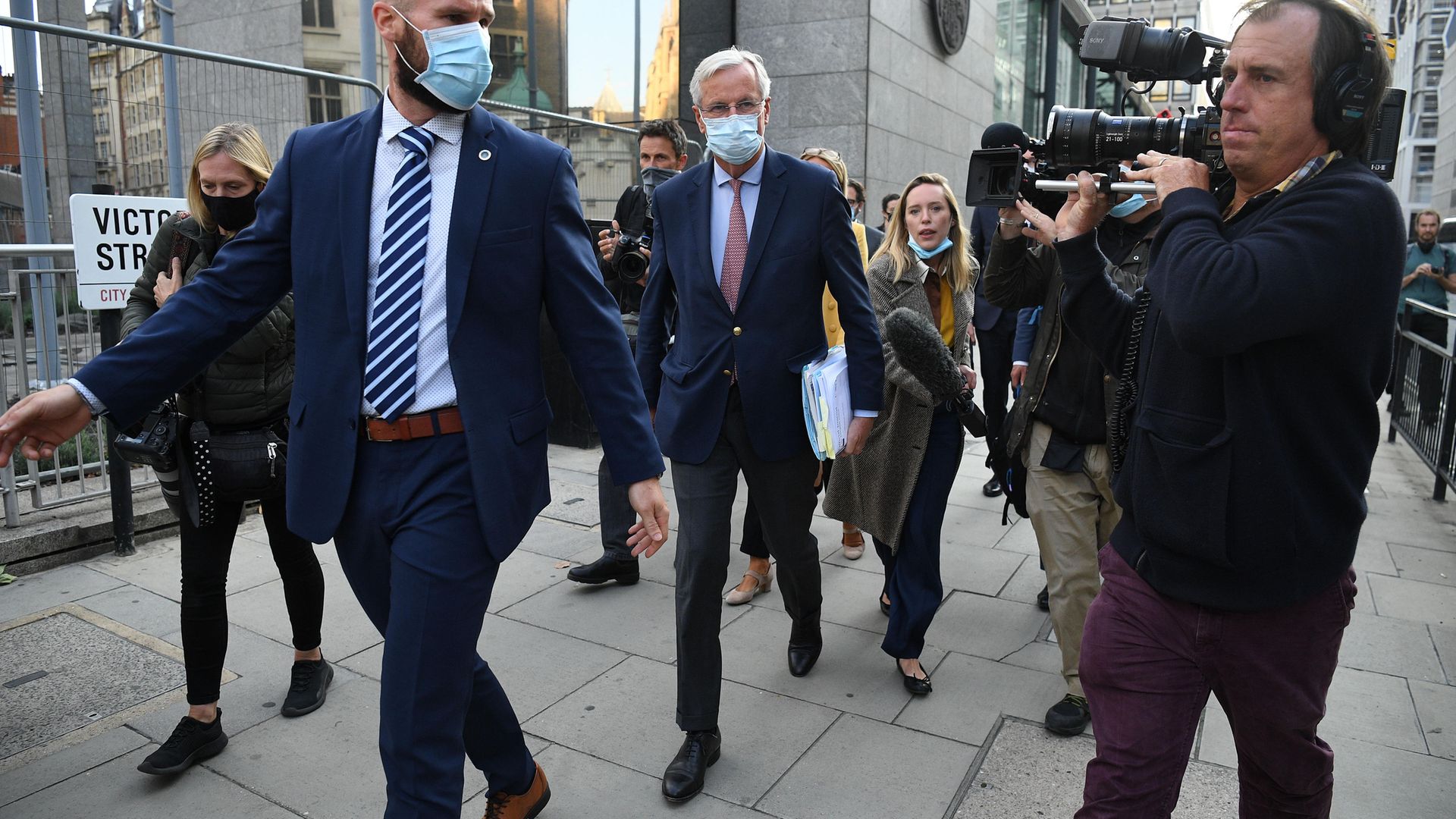
This week we crossed yet another Brexit threshold: there are now fewer than 100 days left of the UK’s implementation period. Brexit is about to get real, and as it stands we will be in a no-deal situation in the middle of a coronavirus winter.
There is still – just – time for the UK and the EU to reach a deal and ratify it before that point. But after four years of needless dramas and false deadlines, the real one is coming up. So why does the prospect of a deal feel so remote?
Most of the discussion – and most of the blame – usually sits on the UK side, and there’s no shortage of targets to point at there, not least the government’s bizarre decision to inflame the EU, US and Ireland by ripping up a key element of the Withdrawal Agreement in violation of international law, leaving trade talks by the wayside until such efforts are abandoned.
Similarly, the febrile political atmosphere of the last few years has left many Brexiteers now sincere in their belief that no-deal would be better than a deal with the EU – our closest neighbours and not coincidentally our closest trade partners.
That misguided belief poisons the well for the government in trying to do a deal – surely if the EU is happy with it, that means it must be a bad deal for Britain? Why not just trade on WTO terms?
But just as it takes two to strike a deal, it takes two to fail to reach one. Might it have been possible for Michel Barnier, who led the EU delegation negotiating both the Withdrawal Agreement and the future relationship, to have done more to get a deal which would benefit both parties?
Much of the UK criticism levelled towards Barnier from UK politicians and media is silly, with some veering into the ridiculous – complaints that he’s being “unfair” when he negotiates is a bit like complaining when an Arsenal striker scores against Manchester United. It might not be what you want to happen, but his job is to score for them, not for you.
Similarly, too many people seem to confuse his job as negotiator with that of some strange form of dictator. Barnier is negotiating based on terms agreed by the heads of the 27 EU nations – they are the ones giving him the orders, not the other way around.
Frequent suggestions in the UK media that the politicians in Paris or Berlin are much more keen for a deal than Barnier are an absurd circus mirror image of the actual story – EU sources report Barnier personally is keen for a deal, as is the European Commission, who would quite like to settle the UK issue for the foreseeable future.
Capitals are keener to make sure no major concessions are made – and for countries with not much in the way of direct trade with the UK, there is very little care given either way.
Given Barnier’s hands are largely tied by his negotiating mandate, there’s also not much point asking or expecting huge or dramatic concessions from him – he simply doesn’t have the power to offer them.
At most he could take the proposal to the Council (the leaders of the member states) and test the waters, but there’s little reason to expect they’d act against their self-interest.
However, observers have suggested Barnier could have played the game in a way slightly more suited to the UK government’s sensibilities and media – perhaps making an unreasonable demand or two that the UK government could then pull him back from, or help sell certain EU concessions as UK ‘victories’ by seeming furious, or similar.
Such theatrics appeared neither in his own playbook nor the EU’s, and that has compounded UK difficulties in securing a deal.
Others also complain Barnier wasted endless time – particularly during talks on the Withdrawal Agreement during Theresa May’s premiership – meeting parliamentarians, in particular Keir Starmer in his capacity as shadow Brexit secretary.
“Perhaps in retrospect he could have been more warm to some of Theresa May’s proposals. But I think he knew the Tories wouldn’t accept her proposals anyway,” said one EU source. “But his biggest mistake was probably meeting Starmer so often – [that] turned out to be a complete waste of time.”
The biggest difficulty of all, perhaps, was outside Barnier’s hands. Reflecting on the years of talks, one EU source mulled that the most significant error from the EU side may have been having the same person negotiating the Withdrawal Agreement and the future relationship.
“Barnier’s biggest mistake is to stay on as negotiator for the future relationship,” they said. “It meant he had to negotiate [it] with one hand tied to the back of the Withdrawal Agreement.
“For the rest, it’s not fair to attribute failure to him which ultimately originates with the member states. They have allowed a process-centred approach over a more pragmatic handling of the negotiations. At the same time they are not done and at the end nobody wants to know how the sausage is made, as long as it is dished up in time.”
The hope that Barnier and Johnson will still be able to cook something up is still real on the EU side. If they fail, no-deal will damage several of their member states and inevitably create particular headaches for Ireland.
Even if the damage will be felt much more acutely in the UK, an additional winter crisis is the last thing most of the EU wants. Should it transpire, Barnier may just find himself sharing in the blame – whether fairly or otherwise.










